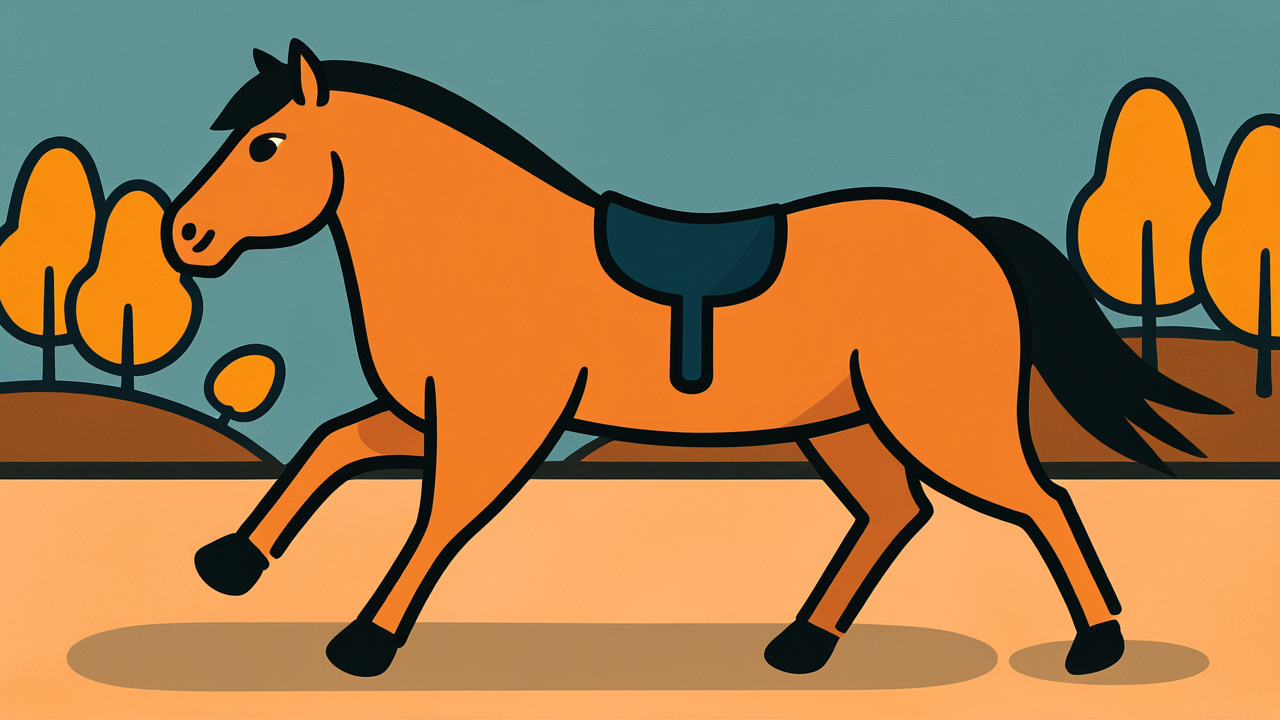How to Read “馬脚を現す”
bakyaku wo arawasu
Meaning of “馬脚を現す”
“Horse legs reveal” means when one’s hidden true nature, real identity, or actual abilities are inadvertently exposed.
This proverb is used in situations where someone who usually puts on airs or tries to appear better than they actually are suddenly shows their true self in an unguarded moment. It’s particularly used when someone who pretends to be knowledgeable despite lacking knowledge suddenly exposes their ignorance when the conversation turns technical, or when someone who acts refined suddenly displays vulgar behavior.
The reason this expression is used is because such moments when “the mask slips off” often happen unintentionally, just like when a male actor’s legs accidentally show in theater. The person intended to keep hiding their true self, but due to a moment of relaxation or carelessness, their real self slips out. Even in modern times, such situations can occur in various contexts, such as social media posts or behavior at drinking parties.
Origin and Etymology
The origin of “Horse legs reveal” is believed to lie in classical Chinese theater. In ancient Chinese theater, female actors were forbidden from performing on stage, so men played female roles. To appear feminine, they wore long costumes to hide their feet.
However, sometimes while being absorbed in their performance, the hem of their costume would lift up, revealing the male actor’s legs. This was called “Horse legs reveal.” The reason it’s called “horse legs” is said to be because the men’s large, hairy legs looked like horse legs.
This expression came to Japan during the period when Japanese culture was influenced by Chinese classical literature and theatrical culture. From the image of something hidden being revealed on stage, it came to be used metaphorically to mean “one’s hidden true nature or identity being exposed.”
Even today in the theater world, when an actor behaves outside their character, it’s called “showing one’s true self,” and “Horse legs reveal” was born from a similar context. It’s a proverb with a very interesting origin, expressing the moment when reality shows its face in the fictional world of theater.
Usage Examples
- That politician usually pretends to be a man of the people, but when it comes to talk about high-end restaurants, he really shows his horse legs reveal
- He was invited as an expert, but he showed his horse legs reveal when asked basic questions
Modern Interpretation
In modern society, “Horse legs reveal” has taken on more complex and diverse meanings. With the spread of social media and the internet, people can present themselves more easily than before. It has become commonplace to express an idealized version of oneself by editing profile photos or posting only selected parts of daily life.
However, this also means that moments of “Horse legs reveal” have increased. There are digital-age “horse legs” such as spontaneous remarks during live streams, accidentally posted honest tweets, or glimpses of one’s room during online meetings. Particularly when influencers or celebrities face backlash, situations that perfectly fit this proverb are often observed.
On the other hand, modern values have also embraced accepting “one’s authentic self.” There’s a growing tendency to prefer showing one’s true-to-life self rather than pretending to be perfect, and traditional “Horse legs reveal” isn’t always perceived negatively.
In the business world too, as corporate transparency is increasingly valued, the damage when secrets are revealed has become greater than before. In our modern age where information spreads rapidly, once you experience “Horse legs reveal,” its impact spreads instantly.
When AI Hears This
In traditional Chinese opera, when actors portray horses, they hide their feet with black cloth to represent four-legged animals. However, when they become too absorbed in their performance, their human feet become visible, causing the audience to suddenly realize “Oh, they’re human after all.” This bears a striking resemblance to phenomena we see on modern social media.
It’s like those moments on Instagram or Twitter when someone crafting a “perfect life” persona accidentally reveals their true thoughts in a casual post, or when their messy room appears in the background of a carefully staged photo. According to psychological research, people average 2-3 contradictory actions per day between their “ideal self” and “real self,” and this gap becomes even more pronounced in online spaces.
What’s particularly fascinating is that in both cases, the presence of an audience triggers the breakdown. Opera performers become too conscious of their audience and stumble, while social media users become so focused on getting “likes” that they make forced posts that expose their contradictions. Digital marketing studies show that approximately 30% of social media posts contain some form of embellishment or staging, with about 15% of those eventually revealing inconsistencies.
In essence, “showing one’s true colors” has simply moved its stage from physical theater to digital space, continuing to illustrate the fundamental human desire to be well-regarded and the inevitable limits of that pursuit.
Lessons for Today
“Horse legs reveal” teaches us about the difficulty of continuing to falsify ourselves and the importance of being genuine. Certainly, in social life, there are times when we need to present ourselves in a certain way. But if this goes too far and we lose sight of our true selves, it defeats the purpose.
This proverb teaches us the value of having the “courage to be our authentic selves.” The honesty to say “I don’t know” when we don’t know something, the tolerance to accept our imperfect selves. Such attitudes are what ultimately lead to gaining trust from others in the long run.
Also, our reaction when others experience “Horse legs reveal” is important. Whether we can warmly accept that moment as part of their humanity rather than criticizing them. This becomes the key to building comfortable relationships for everyone. In modern society especially, diversity and inclusiveness are required. We want to be a society that doesn’t demand too much perfection and can acknowledge each other’s imperfections.



Comments